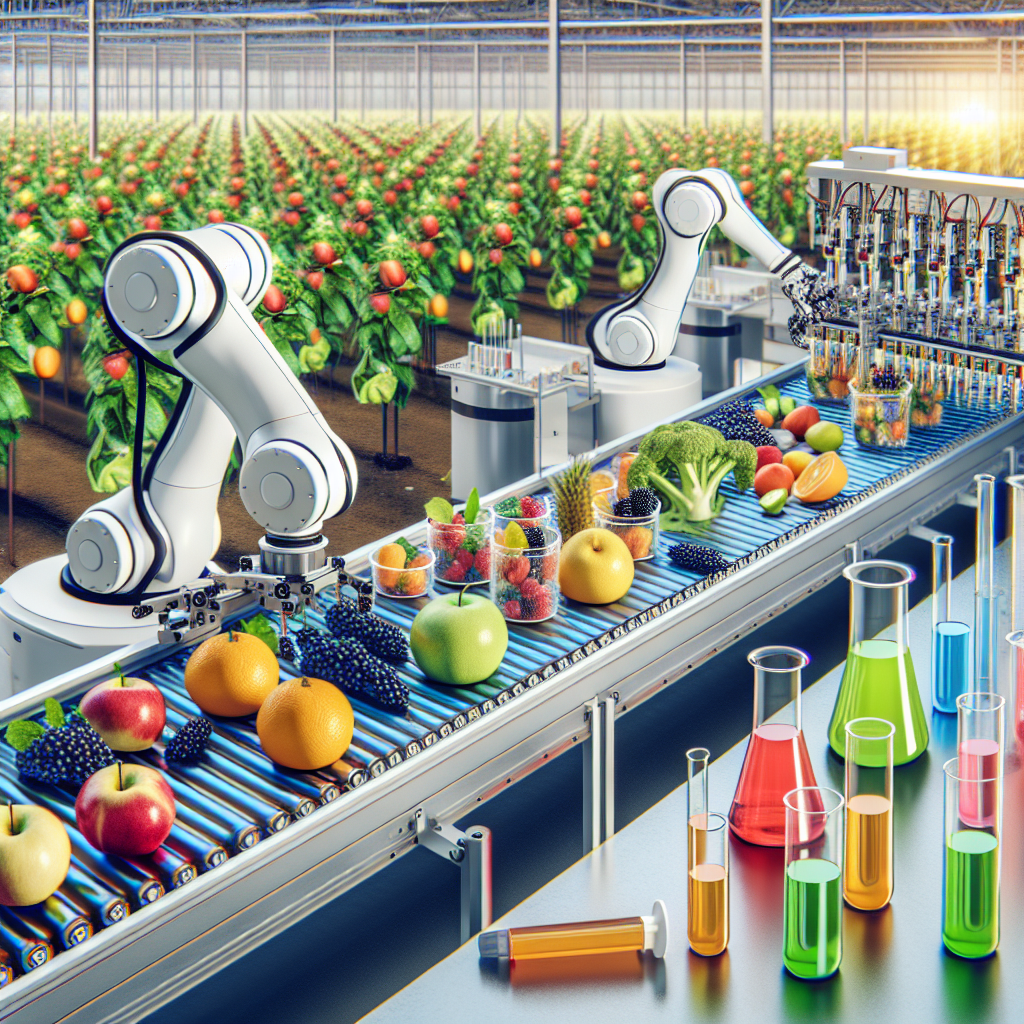Introduction
The intersection of Artificial Intelligence (AI) and the Food and Beverage Industry is creating unprecedented opportunities and transforming how this sector operates. From optimizing supply chains to revolutionizing customer experiences, AI’s impact is far-reaching and promising tremendous advancements in efficiency, personalization, and safety.
Enhancing Production Efficiency
Automated Quality Control
One of the significant areas where AI is making a considerable impact is in automated quality control. AI-powered systems use machine learning algorithms to detect defects and anomalies in products with exceptional accuracy. This not only ensures that high-quality products reach consumers but also reduces waste, thereby optimizing production costs.
Predictive Maintenance
AI-driven predictive maintenance tools are helping companies in the food and beverage industry to avoid unexpected equipment failures. By analyzing data from various sensors and machines, these tools can predict when a piece of equipment is likely to fail and schedule maintenance accordingly. This minimizes downtime and maximizes productivity.
Optimizing Supply Chain Management
Demand Forecasting
Accurate demand forecasting is crucial for minimizing waste and ensuring that products reach the consumer at the right time. AI algorithms analyze historical sales data, seasonal trends, and external factors such as weather conditions to predict future demand more accurately. This allows businesses to maintain optimal inventory levels, reducing both overstock and stockouts.
Route Optimization
The integration of AI into logistics and delivery systems is revolutionizing how goods are transported within the food and beverage supply chain. AI-powered route optimization tools analyze traffic patterns, weather conditions, and other variables to determine the most efficient delivery routes. This not only reduces delivery times but also lowers fuel costs and carbon emissions.
Personalizing Customer Experiences
Customized Offers and Recommendations
AI is also reshaping how consumers interact with food and beverage brands. By analyzing customer data and purchasing behaviors, AI tools can provide highly personalized offers and product recommendations. For instance, machine learning algorithms can suggest new products based on a consumer’s previous purchases, enhancing customer satisfaction and loyalty.
Chatbots and Virtual Assistants
The use of AI-powered chatbots and virtual assistants is transforming customer service in the food and beverage industry. These intelligent systems can handle a wide range of customer queries, from food recommendations to order tracking, providing instant and accurate responses. This not only enhances the customer experience but also frees up human resources for more complex tasks.
Ensuring Food Safety and Compliance
Real-time Monitoring
AI systems are increasingly being used for real-time monitoring of food safety parameters. Sensors equipped with AI technology can detect contaminants, monitor temperature, and track the freshness of perishable goods. This real-time data allows for immediate corrective actions, ensuring that food safety standards are consistently met.
Regulatory Compliance
Compliance with food safety regulations is critical for any food and beverage company. AI tools can help businesses stay compliant by automating the documentation and reporting processes. These systems can also alert managers to any potential compliance issues, allowing them to address problems proactively.
Innovative Product Development
Flavor and Recipe Optimization
AI is also playing a crucial role in innovative product development. Machine learning algorithms can analyze consumer preferences and market trends to identify new flavor combinations and optimize recipes. This reduces the time and cost associated with traditional trial-and-error methods, speeding up the product development process.
Sustainable Practices
Many companies are leveraging AI to adopt more sustainable practices. For example, AI can optimize resource use in farming, reduce water waste, and improve energy efficiency in manufacturing processes. These sustainable practices not only help protect the environment but also appeal to increasingly eco-conscious consumers.
Conclusion
The transformative power of AI in the food and beverage industry is undeniable. From enhancing production efficiency to personalizing customer experiences and ensuring safety and compliance, AI is set to revolutionize this sector in myriad ways. As technology continues to evolve, the possibilities for innovation in the food and beverage industry are virtually limitless.

